|
Books Should Be Free Loyal Books Free Public Domain Audiobooks & eBook Downloads |
|
|
Books Should Be Free Loyal Books Free Public Domain Audiobooks & eBook Downloads |
|
Books on Languages |
|---|
|
Book type:
Sort by:
View by:
|
By: Joseph Devlin | |
|---|---|
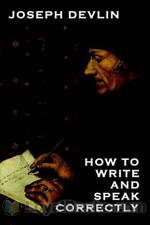 How to Speak and Write Correctly
How to Speak and Write Correctly
A book on improving eloquence, proficiency and grammar in everyday communication. ‘How to Speak and Write Correctly’ is not a manual of the styles to use in speaking and writing, nor is it a manual for grammar. It is a simple, useful book for helping ordinary people in effective communication. It lays down and explains broad rules of communication, further giving useful tips for effective communication. The book also lists common mistakes in communication and offers suggestions on how best to avoid them... | |
By: Grenville Kleiser (1868-1953) | |
|---|---|
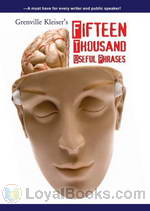 Fifteen Thousand Useful Phrases
Fifteen Thousand Useful Phrases
Fifteen Thousand Useful Phrases is a practical handbook written by Grenville Kleiser. Grenville is known for his writings on humor, positive thinking and inspirational thought. This serves as a handbook of pertinent expressions, striking similes and terms for embellishing speech and literature. This book can be used to improve vocabulary for reading, writing and speaking alike. Through mastery of words, the most powerful and perfect expression of thought can be delivered orally. Choosing the correct words conveys ideas in a crisp and clear way that will hold and audience's attention... | |
By: Anicius Manlius Severinus Boethius (480-525?) | |
|---|---|
 The Theological Tractates and The Consolation of Philosophy
The Theological Tractates and The Consolation of Philosophy
| |
By: Plato (427-347) | |
|---|---|
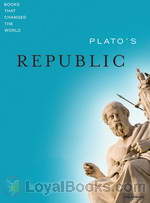 Plato's Republic
Plato's Republic
Plato's Republic is a Socratic dialogue which deals mainly with the definition of justice, the characteristics of a just city state and the just man. Although it was written more than two thousand years ago, many of the ideas and thoughts expounded here are still very much relevant to modern society. This is Plato's best known work and is also considered his most influential especially when it comes to the fields of philosophy and political theory. The Republic is divided into ten books and in each book Socrates discusses different topics from the immortality of the soul to the meaning of justice with his disciples like Glaucon, Thrasymachus, Adeimantus and others... | |
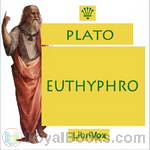 Euthyphro
Euthyphro
Awaiting his trial on charges of impiety and heresy, Socrates encounters Euthyphro, a self-proclaimed authority on matters of piety and the will of the gods. Socrates, desiring instruction in these matters, converses with Euthyphro, but as usual, the man who professes to know nothing fares better than the man who claims to be an expert. One of Plato’s well-known Socratic Dialogues, Euthyphro probes the nature of piety, and notably poses the so-called Euthyphro Dilemma: Do the gods love a thing because it is holy, or is a thing holy because it is loved by the gods? | |
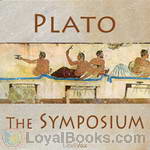 The Symposium
The Symposium
The Symposium (Ancient Greek: Συμπόσιον) is a philosophical book written by Plato sometime after 385 BCE. On one level the book deals with the genealogy, nature and purpose of love, on another level the book deals with the topic of knowledge, specifically how does one know what one knows. The topic of love is taken up in the form of a group of speeches, given by a group of men at a symposium or a wine drinking party at the house of the tragedian Agathon at Athens. Plato constructed the Symposium as a story within a story within a story... | |
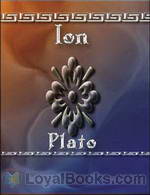 Ion
Ion
In Plato’s Ion, Socrates questions Ion on whether he should really claim laud and glory for his ‘rhapsodic’ recitals of Homer’s poetry. | |
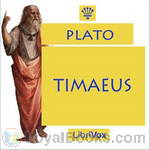 Timaeus
Timaeus
“Our intention is, that Timaeus, who is the most of an astronomer amongst us, and has made the nature of the universe his special study, should speak first, beginning with the generation of the world and going down to the creation of man…” ‘Timaeus’ is usually regarded as one of Plato’s later dialogues, and provides an account of the creation of the universe, with physical, metaphysical and ethical dimensions, which had great influence over philosophers for centuries following. It attributes the order and beauty of the universe to a benevolent demiurge – a ‘craftsman’ or god – fashioning the physical world after the pattern of an ideal, eternal one... | |
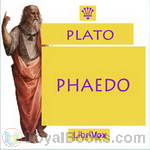 Phaedo
Phaedo
Plato's Phaedo is one of the great dialogues of his middle period, along with the Republic and the Symposium. The Phaedo, which depicts the death of Socrates, is also Plato's seventh and last dialogue to detail the philosopher's final days (the first six being Theaetetus, Euthyphro, Sophist, Statesman, Apology, and Crito).In the dialogue, Socrates discusses the nature of the afterlife on his last day before being executed by drinking hemlock. Socrates has been imprisoned and sentenced to death by an Athenian jury for not believing in the gods of the state and for corrupting the youth of the city... | |
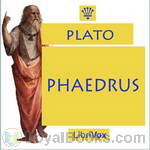 Phaedrus
Phaedrus
“For there is no light of justice or temperance, or any of the higher ideas which are precious to souls, in the earthly copies of them: they are seen through a glass, dimly…”Socrates and his earnest friend Phaedrus, enjoying the Athenian equivalent of a lunchtime stroll in the park, exchange views on love and on the power of words, spoken and written.Phaedrus is the most enchanting of Plato’s Erotic dialogues (capitalised in honour of the god). The barefoot philosopher urges an eager young... | |
By: Charles Lamb | |
|---|---|
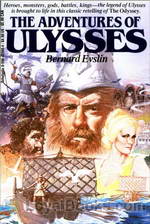 The Adventures of Ulysses
The Adventures of Ulysses
In The Adventures of Ulysses, Charles Lamb re-tells the story of Ulysses’s journey from Troy to his own kingdom of Ithaca. The book uses Homer’s The Odyssey as the basis for the story, but it isn’t a direct translation of the Greek classic. The book is considered a modern version of the epic tale when it was published in 1808. In the preface of the book, Lamb said that he made the narration of the story faster so that more readers would be attracted to it. To begin with, Homer’s Odyssey is already a classic and in re-telling this story, Charles Lamb aimed to make this epic poem more comprehensible to the average person... | |
By: Confucius (551-479 BC) | |
|---|---|
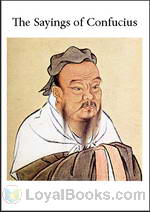 The Sayings of Confucius
The Sayings of Confucius
A treasure trove of wise and pithy sayings, reflections on education, family values, the ideal human being, life and living, politics, art, culture and timeless wisdom, The Sayings of Confucius is indeed an invaluable addition to your bookshelf. Ever since Chinese literary works first began to be translated into European languages, the works of the legendary Chinese philosopher and teacher Confucius, who lived in present day Qufu in the Shandong province of China, more than two thousand years ago, have held universal appeal... | |
By: Andrew Lang (1844-1912) | |
|---|---|
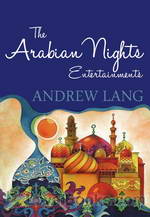 The Arabian Nights
The Arabian Nights
The Arabian Nights is a collection of Perso-Arabic folk tales and other stories. The collection, or at least certain stories drawn from it (or purporting to be drawn from it), became widely known in the West from the 18th century, after it was translated from the Arabic — first into French and then into English and other European languages. The first English language edition, based on Galland’s French rather than the original Arabic, rendered the title as The Arabian Nights’ Entertainment – and this, or simply The Arabian Nights, has been the title by which it has been best known to English-speaking people ever since. | |
By: Edwin Abbott Abbott (1838-1926) | |
|---|---|
 How to Write Clearly Rules and Exercises on English Composition
How to Write Clearly Rules and Exercises on English Composition
| |
By: Rabindranath Tagore (1861-1941) | |
|---|---|
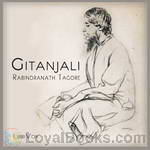 Gitanjali
Gitanjali
Gitanjali is a collection of 103 poems in English, largely translations by the Bengali poet Rabindranath Tagore. This volume became very famous in the West, and was widely translated into other languages. In England a slender volume was published in 1913, with an exhilarating preface by W. B. Yeats. In the same year, Rabindranath became the first non-European to win the Nobel prize. | |
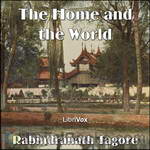 The Home and the World
The Home and the World
Rabindranath Tagore (1861–1941), also known by the sobriquet Gurudev, was a Bengali poet, Brahmo religionist, visual artist, playwright, novelist, and composer whose works reshaped Bengali literature and music in the late 19th and early 20th centuries. He became Asia’s first Nobel laureate when he won the 1913 Nobel Prize in Literature. The Home and the World is a 1916 novel, set in the estate of the rich Bengali noble Nikhil. He lives happily with his beautiful wife Bimala until the appearance of his friend and radical revolutionist, Sandip... | |
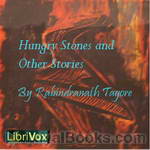 The Hungry Stones and Other Stories
The Hungry Stones and Other Stories
This is a collection of short stories written by the Nobel Laureate Rabindranath Tagore. The stories contained in this volume were translated by several hands. The version of The Victory is the author's own work. The seven stories which follow were translated by Mr. C. F. Andrews, with the help of the author's help. Assistance has also been given by the Rev. E. J. Thompson, Panna Lal Basu, Prabhat Kumar Mukerjii, and the Sister Nivedita. | |
 My Reminiscences
My Reminiscences
These Reminiscences were written and published by the Author in his fiftieth year, shortly before he started on a trip to Europe and America for his failing health in 1912. It was in the course of this trip that he wrote for the first time in the English language for publication. (from preface) | |
 The Post Office
The Post Office
| |
 Stray Birds
Stray Birds
| |
 Chitra, a play in one act
Chitra, a play in one act
| |
 The King of the Dark Chamber
The King of the Dark Chamber
| |
 First Jasmines
First Jasmines
Rabindranath Tagore, was a Bengali polymath who reshaped Bengali literature and music, as well as Indian art with Contextual Modernism in the late 19th and early 20th centuries. Author of Gitanjali and its "profoundly sensitive, fresh and beautiful verse", he became the first non-European to win the Nobel Prize in Literature in 1913. In translation his poetry was viewed as spiritual and mercurial; however, his "elegant prose and magical poetry" remain largely unknown outside Bengal. Tagore introduced new prose and verse forms and the use of colloquial language into Bengali literature, thereby freeing it from traditional models based on classical Sanskrit... | |
 The Fugitive
The Fugitive
| |
 The Cycle of Spring
The Cycle of Spring
| |
By: Publius Vergilius Maro (70 BC - 19 AD) | |
|---|---|
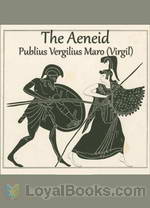 The Aeneid
The Aeneid
The Aeneid is a Latin epic written by Virgil in the 1st century BC that tells the legendary story of Aeneas, a Trojan who traveled to Italy, where he became the ancestor of the Romans. The first six of the poem’s twelve books tell the story of Aeneas’ wanderings from Troy to Italy, and the poem’s second half treats the Trojans’ ultimately victorious war upon the Latins, under whose name Aeneas and his Trojan followers are destined to be subsumed. The poem was commissioned from Vergil by the Emperor Augustus to glorify Rome... | |
 The Eclogues
The Eclogues
This book of poems, written between 42 en 39 BC, was a bestseller in ancient Rome, and still holds a fascination today. Held to be divinely inspired not only by the Romans themselves, but by the Medieval Catholic church, The Eclogues is one of the most beloved collections of Latin short poetry. | |
By: Anton Chekhov (1860-1904) | |
|---|---|
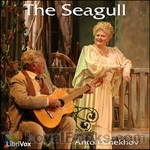 The Seagull
The Seagull
The Seagull (Russian: Чайка, Chayka) is the first of what are generally considered to be the four major plays by the Russian dramatist Anton Chekhov. The play was written in 1895 and first produced in 1896. It dramatises the romantic and artistic conflicts between four characters: the ingenue Nina, the fading leading lady Irina Arkadina, her son the experimental playwright Konstantin Treplyov, and the famous middlebrow story writer Trigorin. | |
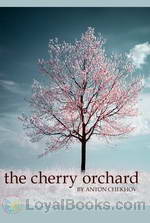 The Cherry Orchard
The Cherry Orchard
The Cherry Orchard is Russian playwright Anton Chekhov's last play. It premiered at the Moscow Art Theatre 17 January 1904 in a production directed by Constantin Stanislavski. Chekhov intended this play as a comedy and it does contain some elements of farce; however, Stanislavski insisted on directing the play as a tragedy. Since this initial production, directors have had to contend with the dual nature of this play. The play concerns an aristocratic Russian woman and her family as they return to the family's estate (which includes a large and well-known cherry orchard) just before it is auctioned to pay the mortgage... | |
 Uncle Vanya
Uncle Vanya
Uncle Vanya (subtitled “Scenes From Country Life”) is a tragicomedy by Anton Chekhov. It is set on the failing country estate of a retired professor, Serebrakoff, who returns after a long absence with his beautiful young wife, and throws the household into confusion. Rivalry, unrequited love, illicit romance, and attempted suicide are the result, punctuated throughout by Chekhov’s sad, wistful humor. | |
By: Matthew Arnold (1822-1888) | |
|---|---|
 Celtic Literature
Celtic Literature
| |
By: George Bernard Shaw (1856-1950) | |
|---|---|
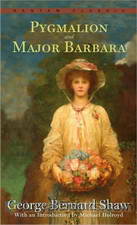 Pygmalion
Pygmalion
If you've watched and loved the delightful musical My Fair Lady, then you'd love to read the wonderful play on which it is based. Pygmalion by George Bernard Shaw is equally engrossing and as full of charm, wit and underlying pathos. First performed on stage in 1912, Pygmalion takes its title from the Greek myth of Pygmalion and Galatea. In the ancient story, a brilliant sculptor, Pygmalion falls in love with one of his own creations, a ravishingly beautiful sculpture whom he names Galatea. He propitiates Aphrodite, who grants his wish that his statue would come to life and that he could marry her... | |